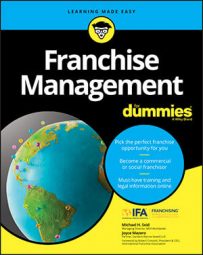The same goes for selling it: There are right times and wrong times to exit. The timing depends on inner and outer forces, including your personal situation, professional aspirations, the franchisor, and market changes.
There’s nothing wrong if you decide to exit your franchise, but keep in mind that the buyer of your business is going to want to know why. The reasons you give can impact your selling price because if the prospective buyer senses urgency, they may try to get you to lower your price. If a prospective buyer understands that the franchise system and your industry are flying high, the buyer may pay a premium for the privilege of entering the franchise system.
If the franchisor is granting your buyer a franchise agreement with a full term, that may be a significant advantage to you in selling your business. Talk to the franchisor in advance of putting your business up for sale so you can position your business appropriately.
Getting personal to determine your franchising capabilities
If stress or, ultimately, burnout is having a significant negative impact on you, what can you do to rejuvenate yourself? Maybe taking a long vacation to recharge is what you need. When was the last time you spent some time alone with the family? Are changes needed in your personnel or the culture at your location?A bad reputation will spread faster than a good one. If you’re burned out or have outgrown the business, it makes sense for you to exit before the business and, subsequently, the resale price begin to suffer.
On the other hand, maybe the economics of your business is changing or you see a new opportunity or want to relocate or retire. Here, financial factors are likely more critical, and you need to get the most when you sell. Maybe you anticipated retiring in five years, but an unsolicited and incredible purchase proposal presents itself. That may also be reason enough for you to sell now.
Examining your world: Does your franchise fit?
Begin by assessing the economy and the trends for your business. Good economic times and having positive market trends are conducive to selling at a higher price. When interest rates are low and financing is plentiful, more prospective buyers come forward. Can you afford not to take the right offer? Maybe with the proceeds from the sale of your existing business, you can relocate to a long-desired location and invest in a new franchise. Or maybe you can take the proceeds and invest in development rights for multiple units from your existing franchisor.Assessing the local market is also critical. Are new businesses coming in to your area? Is the area undergoing revitalization? Is the landlord making improvements to attract new tenants and customers? If the answer to these questions is yes, that could bolster the price of your business. In contrast, if the surrounding neighborhood is starting to look shabby and the landlord is leasing to less desirable businesses, you may have missed your best opportunity to exit at a higher valuation.
Then you need to look at the industry itself. A thriving industry could mean a lucrative sale price. A franchisee may want to cash out before the market is saturated, a fad fades, or new technologies make the business obsolete. Even with a retail theater approach, consider how technology has impacted the way customers shop and what they are shopping for.What is the state of your franchise system? Although you conducted your due diligence on your franchisor when you first came on board, things may have changed — for the better or for the worse. If same-store sales are starting to get soft because new and innovative competitors are entering the market, maybe the time is ripe for you to exit. If instead you believe the franchise system is and will continue to be a leading market competitor, you may want to keep operating and even expand development plans to include more units.
Some red flags that worry prospective buyers include the following:
- Franchisee lawsuits
- Negative press
- Uncontrolled system growth or unprecedented franchise closures
- Sagging system-wide sales
- Unacceptable changes to new franchise agreements
- Management shake-ups
- Some other company acquiring the franchisor

